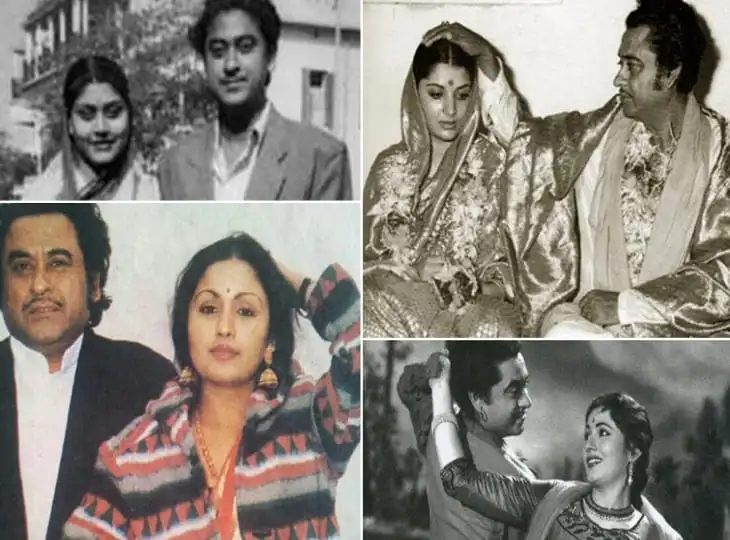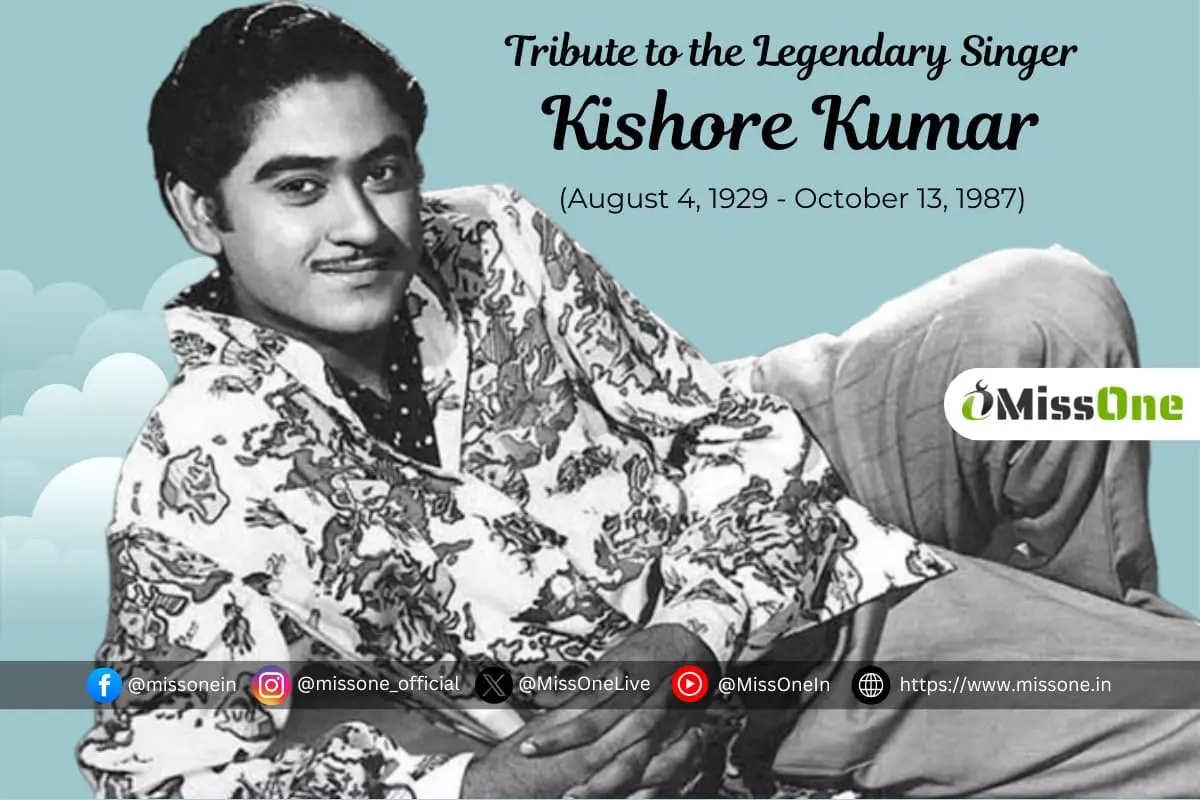Kishore Kumar was one of the most iconic playback singers in Indian cinema. His unique voice, versatility, and ability to bring emotions into songs made him unforgettable. Even decades after his passing, his songs continue to be loved by people of all ages. In this blog, we pay tribute to the legendary singer by looking at his life, family, and glorious film career.
Early Life and Family
Kishore Kumar was born as Abhas Kumar Ganguly on August 4, 1929, in Khandwa, Madhya Pradesh. He belonged to a Bengali family. His father, Kunjalal Ganguly, was a lawyer, and his mother, Gouri Devi, was a homemaker. Kishore had three siblings: Ashok Kumar, Sati Devi, and Anoop Kumar.
His elder brother, Ashok Kumar, was already a famous actor in Bollywood. Inspired by Ashok, Kishore moved to Mumbai to try his luck in the film industry. However, music was his true passion, and he soon found his calling as a singer.
Journey into Bollywood
Kishore Kumar started his career as an actor, but his heart was in singing. His first song as a playback singer was “Marne Ki Duayen Kyon Mangu” for the film Ziddi (1948). Although he did not have formal training in classical music, his natural talent and unique style helped him create a niche for himself.
He was initially influenced by K. L. Saigal but later developed his own signature singing style. His ability to add fun, energy, and deep emotions to songs made him a favorite of music lovers.
Rise to Stardom
Kishore Kumar’s real breakthrough as a playback singer came in the 1960s and 1970s. His songs for Dev Anand, Rajesh Khanna, and Amitabh Bachchan became instant hits. His partnership with legendary music directors like S. D. Burman, R. D. Burman, and Laxmikant-Pyarelal led to some of the most memorable songs in Bollywood history.
One of his biggest milestones was the song “Roop Tera Mastana” from Aradhana (1969), composed by S. D. Burman. This song changed his career forever and made him the leading playback singer of Bollywood.
Notable Songs and Achievements
Kishore Kumar sang in various genres, from romantic and sad songs to comedy and fast-paced numbers. Some of his most popular songs include:
- “Mere Sapno Ki Rani Kab Aayegi Tu” – Aradhana (1969)
- “Zindagi Ek Safar Hai Suhana” – Andaz (1971)
- “Pal Pal Dil Ke Paas” – Blackmail (1973)
- “Chalte Chalte Mere Yeh Geet Yaad Rakhna” – Chalte Chalte (1976)
- “Humen Tumse Pyaar Kitna” – Kudrat (1981)
- “O Saathi Re” – Muqaddar Ka Sikandar (1978)
His songs had a magical quality, and he won several Filmfare Awards for Best Playback Singer. He remains one of the most awarded male playback singers in Bollywood.

Kishore Kumar as an Actor and Filmmaker
Apart from singing, Kishore Kumar was also a talented actor and filmmaker. He acted in many comedy films, such as:
- Chalti Ka Naam Gaadi (1958) – A hilarious film featuring all three Ganguly brothers.
- Half Ticket (1962) – A film where Kishore played a double role, showing his comic genius.
- Padosan (1968) – A cult classic where he played the role of a music teacher.
He also directed and produced films like Door Gagan Ki Chhaon Mein (1964), showcasing his creative vision.
Personal Life
Kishore Kumar’s personal life was as colorful as his songs. He married four times:
- Ruma Guha Thakurta – His first wife and a talented singer.
- Madhubala – The famous actress, whom he loved deeply. Unfortunately, she suffered from a heart condition and passed away.
- Yogita Bali – Their marriage was short-lived.
- Leena Chandavarkar – His fourth and final wife, who remained with him until his death.
His son, Amit Kumar, followed in his footsteps and became a playback singer.
Legacy and Impact
Kishore Kumar passed away on October 13, 1987, due to a heart attack. His death was a huge loss for Indian music. However, his songs continue to live on, bringing joy and nostalgia to millions of listeners.
His influence on Indian cinema is immense. Many modern singers, including Sonu Nigam, Kumar Sanu, and Arijit Singh, consider him their idol. Even today, his songs are played on radio, TV, and at celebrations, proving that his voice is truly timeless.
Conclusion
Kishore Kumar was not just a singer; he was an artist who could make people laugh, cry, and dance with his music. His voice was full of life, and his songs continue to be loved across generations.
He remains a legend, an inspiration, and a true gem of Indian cinema. No matter how much time passes, Kishore Kumar’s melodies will always have a special place in our hearts.

